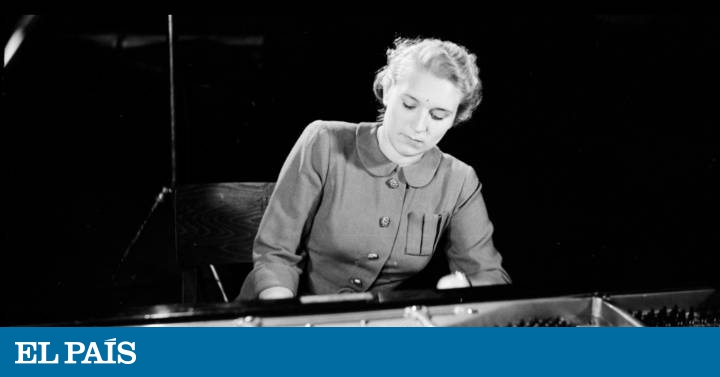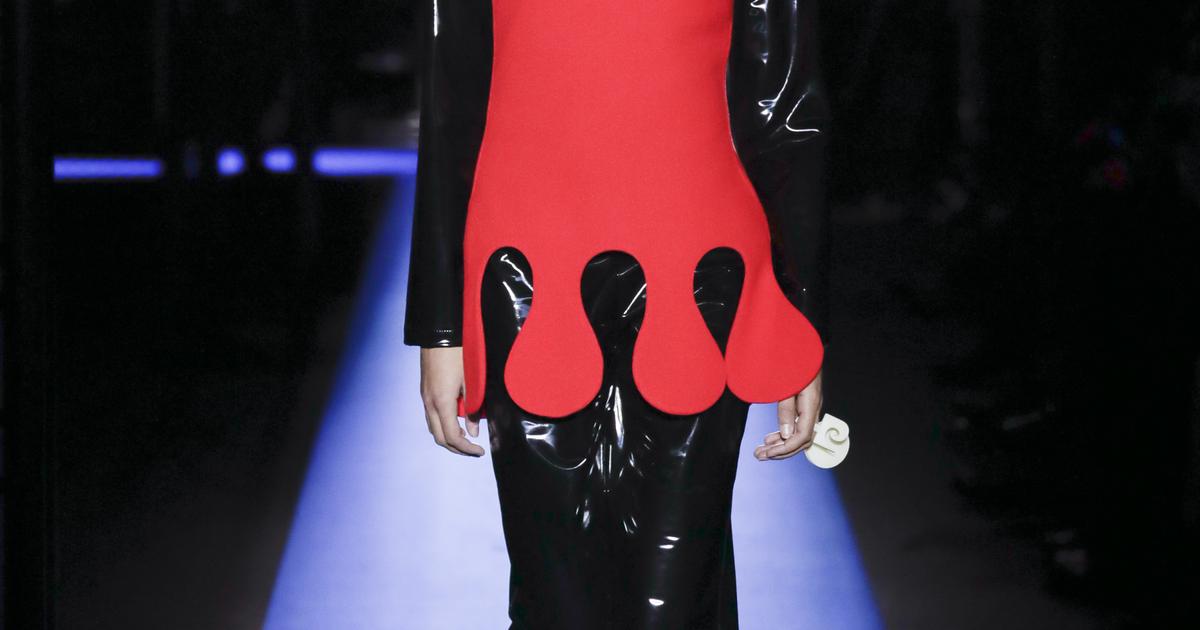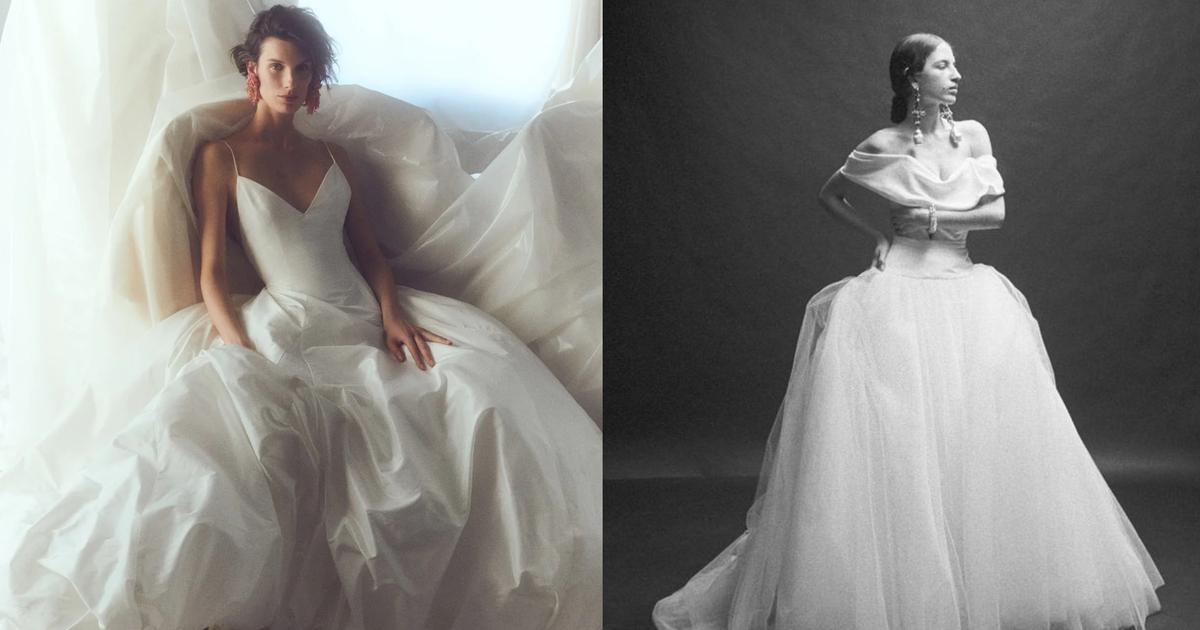In Raphaël Jerusalmy's Saving Mozart , music critic Otto J. Steiner dressed up to listen to his favorite recordings. He lived in seclusion in a sanatorium and wrote a newspaper during the celebration of the Salzburg Festival in 1939, while the Nazi swastika infected everything. But he had records: “I put El caballero de la rosaon the gramophone and closed my eyes, imagining the auditorium, the tailcoats, the uniforms, the women with fans, adorned with jewels, the murmur of the orchestra tuning its instruments. I even pretended to smoke a cigar with my pencil between my fingers. " It was easy to remember Steiner and the Jerusalem novel, while we lived confined and without concerts or operas. But we had records. And the news arrived on time, both to download stores and streaming platforms . We review here the main classic releases since the outbreak of the pandemic.
We started, like Steiner, by Richard Strauss. And for the recording of his opera La mujer sin sombra that Orfeo published in April. That "daughter of pain" ( Schmerzenskind ), as the composer called her. A child whose gestation was delayed eight years, as a result of the Great War. But it was released in October 1919, coinciding with the last outbreaks of the flu pandemic in Vienna. This recording includes the performance of May 25, 2019, at the State Opera of the Austrian capital, which served, both to commemorate the 150th anniversary of its building, and to celebrate the centenary of its premiere. Christian Thielemann gives meaning to the complex symbolism of the plot, without renouncing to unravel each strand of its dense polyphony. Strauss never wrote such a long and complex opera, nor did he use such a massive and varied orchestration. In the two pairs of protagonists they stand out. Camilla Nylund ideally recreates the progressive humanization of the Empress, from the brilliance of the spirit to the fire of passion. And Nina Stemme is a sensational Dyer's Wife, as corrosive as she is fiery.
Erich Wolfgang Korngold is trading higher thanks to John Wilson's records. At the end of March, Chandos released his latest CD with the Sextet for Strings and the Concerto for Violin . The first work shows her 17-year-old Viennese precocity, which Strauss himself admired, and the second shows that Korngold does not sound like film music, but that Hollywood's cinematic symphonism ended up sounding like Korngold. In the three movements of the concert we recognize themes from classic 1930s soundtracks such as Another Dawn , Anthony Adverse and The Prince and the Beggar . But aside from the exquisite tapestry that Wilson brings to the head of the RTÉ Concert Orchestra, violinist Andrew Haveron is a sensational storyteller: he sings, smiles at us, and even winks at us on the other side of the speaker with his instrument.
Halina Czerny-Stefańska: she was the soloist
Apart from the news, we add to finish an interesting reissue. In 1966, EMI recovered an old performance by the legendary Romanian pianist Dinu Lipatti of the Piano Concerto no. 1 by Chopin, through the intercession of producer Walter Legge. It was his only recording of the play and it soon became a reference. But in 1981, a seasoned BBC listener discovered that it was a hoax. The soloist was not Lipatti, but a Polish pianist named Halina Czerny-Stefańska (1922-2001). Actually, this excellent recording had been made by Supraphon, in 1955, with Václav Smetáček and the Czech Philharmonic. EMI withdrew her record and soon after, another authentic record by the Romanian pianist was discovered. But the recording of the Polish pianist was postponed to oblivion and was only released on the state label Polskie Nagrania. Profil has just recovered it within a quadruple CD that brings together all Chopin's records made by Czerny-Stefańska, between 1949 and 1960. More than four hours of performances full of bravery, elegance and musicality by this direct descendant of Carl Czerny who won, in 1949, the first prize ex aequo at the Warsaw Chopin Competition. A great pianist to discover.
There have been more excellent concert records. At the end of May, Hyperion released Shostakovich's two with violinist Alina Ibragimova accompanied by Vladimir Yurovski and the Russian State Symphony Orchestra “Evgeny Svetlanov”. The Concerto no. 1 sounds like an imposing portrait from the abyss and is recorded in its original version, that is, with the solo violin introducing the final Burlesque with all that Jewish bustle that would have bothered Stalin so much, since the work could not be released until after his death . Warner Classics published Bohemian Tales in early July, an album by violinist Augustin Hadelich with Dvorak's Violin Concerto , together with Jakub Hrůša and Bavarian Radio. They make it a fascinating debate between soloist and orchestra, halfway between symphonic poem and Slavic dance. And there have also been concerts of contemporary creation, such as the exquisite 2018 Thomas Adès Piano Concerto which Deutsche Grammophon published in early March with the composer at the helm and Kirill Gerstein as soloist. A composition halfway between the portrait of that Russian-American pianist and the look at the past as a projection of the future. Not only do we hear, at the beginning, a reference to Gershwin's I Got Rhythm , but the play continues with nods to Prokófiev, Bartók and Nancarrow, although its beautiful and obsessive central movement stands out.
Interesting news about old music has not been lacking either. Like that lofty Renaissance portrait of hell painted with late and melancholic motets by Orlando di Lasso, from Cappella Amsterdam under the direction of Daniel Reuss (Harmonia Mundi). Not forgetting the exquisite and crackling Vivaldi of the cellist Asier Polo with the Orquesta Barroca de Sevilla and Andrés Gabetta (IBS). The best chamber music album during the pandemic is from The Nash Ensemble and includes reference versions of the wonderful piano trios by Clara Schumann and Fanny Mendelssohn (Hyperion). And among the orchestral novelties, the new recording by Falstaff , by Elgar, by Daniel Barenboim and the Staatskapelle Berlin (Decca) stands out. A German orchestra in love with the English composer and a conductor who has returned to his music with four more decades of wisdom. This fifth album dedicated to Elgar confirms the idyll.
But the recording that, emulating Steiner, should be listened to in a gala dress is La Passione by the soprano and conductor Barbara Hannigan with the Ludwig Orchestra. A conceptual proposal, which Alpha published at the end of March, and where Haydn's Symphony No. 49 “The Passion” acquires another dimension among contemporary works. Between Luigi Nono's homage for solo soprano to the heroine of Algerian independence Djamila Boupacha (1962) and the Four Cantos to cross the threshold for soprano and 15 instruments (1998), by Gérard Grisey, a spectral composition that allows Haydn to be connected with the afterlife. Hannigan takes the license to add a missing clef to the long Adagio that opens the symphony. It is, according to her, the same dark angel that will cradle us, at the end of Grisey's work, and after the death of humanity. But it does not sound like the end, but a new beginning for uncertain times.
DIE FRAU OHNE SCHATTEN
Strauss.
Wiener Staatsoper.
Christian Thielemann.
Orpheus.
VIOLIN & SEXTETO CONCERT
Korngold.
Andrew Haveron & John Wilson.
Chandos.
BOHEMIAN TALES
Dvorak.
Augustin Hadelich & Jakub Hrusa.
Warner Classics.
VIOLIN CONCERTS
Shostakovich.
Alina Ibragimova & Vladimir Yurovski.
Hyperion.
PIANO CONCERT
Adès.
Kirill Gerstein & Thomas Adès.
Deutsche Grammophon.
THE PASSIONE
Barbara hannigan
Ludwig Orchestra.
Alpha.
Hell
Lasso.
Cappella Amsterdam & Daniel Reuss.
Harmonia Mundi.
CONCERTS FOR VIOLONCELO
Vivaldi, Boccherini & Haydn.
Asier Polo & Andrés Gabetta.
Ibs.
CHAMBER MUSIC
Clara Schumann & Fanny Mendelssohn.
Nash Ensemble.
Hyperion.
SEA PICTURES & FALSTAFF
Elgar.
Elina Garança & Daniel Barenboim.
Decca.















